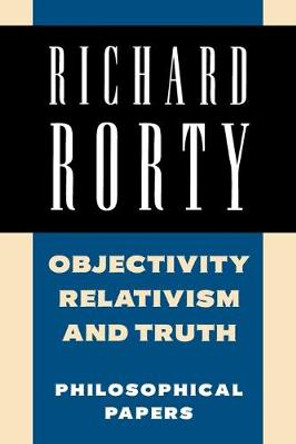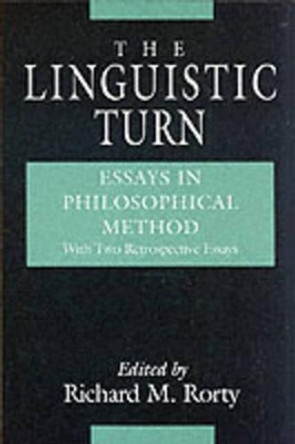Description
About the Author
Neil Gross is the Charles A. Dana Professor of Sociology and chair of the department of sociology at Colby College. He is also a visiting scholar of New York University's Institute for Public Knowledge.
Reviews
"This is a book for many sorts of readers. It offers a full-scale biography of one of the greatest American philosophers and public intellectuals of the twentieth century; an important contribution to the history of pragmatism; and a pathbreaking new approach in the sociology of ideas. The book demonstrates how much American sociology, philosophy, and history can profit when they are brought more closely together again."--Hans Joas, University of Chicago "Rorty granted Gross access to his papers and correspondence, and Gross uses this material very effectively. . . . This inside view of one of the most well-connected academics in the world can't help but fascinate us."--Barry Allen "Notre Dame Philosophical Review " "Essential for academic sociology, philosophy, intellectual history, and biography collections in academic libraries, as well as for public libraries collecting comprehensively in those subjects."--Library Journal "Combining biographical description and sociological analysis, Gross has produced a trenchant study that aims to identify the structural forces that helped shape one of America's most controversial and widely discussed philosophers."--Choice "Gross's careful archival research, innovative theoretical synthesis and substantive contributions are likely to help inspire a range of new studies on the sociology of philosophy and the humanities. The book is well worth a careful read. . . . The story of academic social mobility that Gross tells is compelling, the book is a terrific read that is likely to become a classic, and the theory of 'intellectual self-concept' is well worth building on and developing."--Neil McLaughlin "Canadian Journal of Sociology " "I highly recommend Neil Gross's biography to all persons who are interested in Rorty, contemporary philosophy, and the socioogy of ideas. This is a first rate work."--Brad Frazier "Metapsychology " "Sociology does not usually engage intellectual biography. In his Richard Rorty, Neil Gross gracefully does so, and he does much more as well. He shows how a 'self concept' must be central to any sociological account of significant intellectual achievement. In doing so, he challenges more deterministic conceptions and restores integrity to the creative process."--Jeffrey Alexander, Yale University "The contemporary American philosopher Richard Rorty (1931-2007) was the epitome of a successful academic--educated and then employed a prestigious institutions, he saw his influence extend into sociology, cultural studies, and literary criticism. Harvard assistant professor Gross concentrates on Rorty's professional successes in academia and sends a discouraging message to both the graduate student and the academy. Using Rorty's career as a case study, Gross observes the 'social hierarchy' among disciplines and notes that academics are largely motivated by desires for intellectual prestige, that 'radical intellectual innovation is most likely to come, not from young scholars, but from those who are sufficiently established as to be able to take bold professional risks, ' and that 'aspiring intellectuals compete with one another for the limited attention of mentors.' Citing the case of Rorty's first wife, Amelie--who was also trained as a philosopher, but was repeatedly forced to sacrifice her career for Rorty's--Gross illuminates the unequal opportunities for the ambitious wives of male intellectuals. The book's subtle yet scathing critique of the tenure and promotion systems within universities reveals how such systems actually inhibit innovation in young scholars. A specialized sociological study of the academy, this book will appeal to all those concerned with the state of research in higher education." --Publishers Weekly "More than an exhaustively researched and skillfully crafted biography of one of the most influential intellectuals of our time, Neil Gross's Richard Rorty is also an exemplary exercise in the 'new sociology of ideas.' By situating Rorty in the multiple contexts, personal, institutional, and discursive, in which his thought developed, and tracing the intellectual self-concept he forged in response, Gross provides a compelling model for twenty-first-century intellectual history." --Martin Jay, University of California, Berkeley
Book Information
ISBN 9780226676487
Author Neil Gross
Format Paperback
Page Count 390
Imprint University of Chicago Press
Publisher The University of Chicago Press
Dimensions(mm) 229mm * 152mm * 25mm










